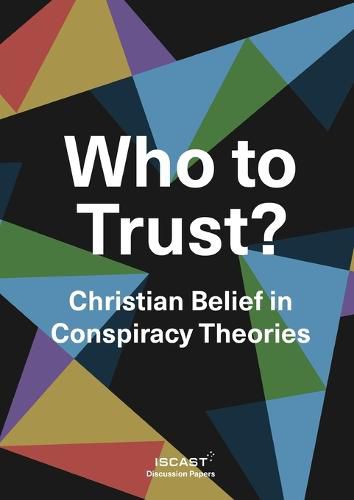Readings Newsletter
Become a Readings Member to make your shopping experience even easier.
Sign in or sign up for free!
You’re not far away from qualifying for FREE standard shipping within Australia
You’ve qualified for FREE standard shipping within Australia
The cart is loading…






This title is printed to order. This book may have been self-published. If so, we cannot guarantee the quality of the content. In the main most books will have gone through the editing process however some may not. We therefore suggest that you be aware of this before ordering this book. If in doubt check either the author or publisher’s details as we are unable to accept any returns unless they are faulty. Please contact us if you have any questions.
Conspiracy theories are causing conflict in Christian communities. Deep disagreements are produced from mistrust of experts and authorities. Friendships are broken, families are torn apart, and people are hurt. Conspiracists feel unfairly dismissed and stigmatised. People struggle to understand, persuade, or even tolerate each other over these issues.
Why does this happen, and how can we address the concerns of those involved? Who to Trust? surveys recent research and writing on conspiracism. It selects and summarises what is helpful for Christian leaders, Christian knowledge professionals, and Christian conspiracists too.
The four major chapters examine conspiracy theories themselves, the way they affect politics, applicable biblical ethics for Christians, and practical questions about their effects in relationships and communities. Vaccination conspiracies in Australia are used as an exercise in thinking about them, and an appendix proposes questions for better conversations based on these chapters.
Instead of dismissing conspiracy theories or labelling conspiracy theorists as fearful, delusional, or irrational, Who to Trust? suggests that we can find common ground in our Christian concerns for justice, truth, and faithfulness, and that mistrust is a constructive way to understand our conflicts on these issues.
$9.00 standard shipping within Australia
FREE standard shipping within Australia for orders over $100.00
Express & International shipping calculated at checkout
This title is printed to order. This book may have been self-published. If so, we cannot guarantee the quality of the content. In the main most books will have gone through the editing process however some may not. We therefore suggest that you be aware of this before ordering this book. If in doubt check either the author or publisher’s details as we are unable to accept any returns unless they are faulty. Please contact us if you have any questions.
Conspiracy theories are causing conflict in Christian communities. Deep disagreements are produced from mistrust of experts and authorities. Friendships are broken, families are torn apart, and people are hurt. Conspiracists feel unfairly dismissed and stigmatised. People struggle to understand, persuade, or even tolerate each other over these issues.
Why does this happen, and how can we address the concerns of those involved? Who to Trust? surveys recent research and writing on conspiracism. It selects and summarises what is helpful for Christian leaders, Christian knowledge professionals, and Christian conspiracists too.
The four major chapters examine conspiracy theories themselves, the way they affect politics, applicable biblical ethics for Christians, and practical questions about their effects in relationships and communities. Vaccination conspiracies in Australia are used as an exercise in thinking about them, and an appendix proposes questions for better conversations based on these chapters.
Instead of dismissing conspiracy theories or labelling conspiracy theorists as fearful, delusional, or irrational, Who to Trust? suggests that we can find common ground in our Christian concerns for justice, truth, and faithfulness, and that mistrust is a constructive way to understand our conflicts on these issues.